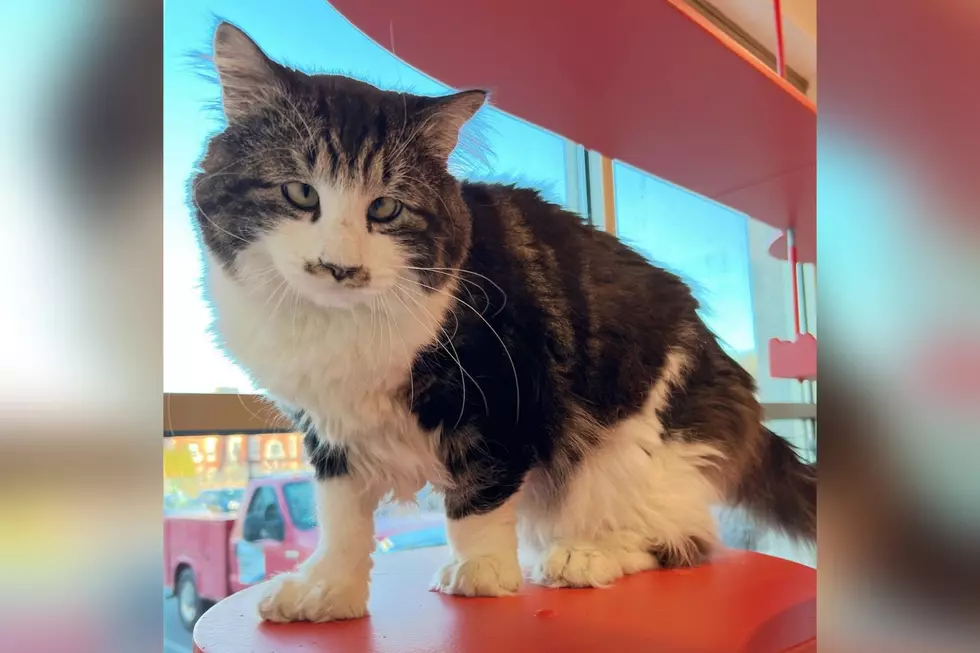
Boston Funky Feline Flick Found His Forever Home
It may not be Wet Nose Wednesday, but let’s just call today Furball Friday as we can’t resist sharing with you these adorable photos of Flick, a very unique cat who was recently adopted at MSPCA-Angell’s Boston adoption center.
We wish we could have taken him home.
Flick has the cutest crossed eyes, and he is double-pawed, making him stand out among all the other great cats looking for a home.
With that fur, he will certainly keep his new owner warm during the arctic temperatures bearing down on us this weekend.

Flick may have found his forever home, but there are still plenty of other pets at MSPCA-Angell and other animal shelters looking for adoption. Each week, Maddie Levine features a SouthCoast pet seeking a new home with her Wet Nose Wednesday feature.
MSPCA adoption will require some steps, and a fee. An adult cat will cost $250 if the cat is a year old to nine years old, and a $100 adoption fee if the cat is 10 years old or older.
That adoption fee includes having the pet spayed or neutered, given vaccinations and deworming, other medical tests, and microchip implanting and registration.
You’ll also need to bring along a pet carrier, collar and ID tag, or you can purchase them at the adoption center.
Why do cats have whiskers? Why do they meow? Why do they nap so much? And answers to 47 other kitty questions:
LOOK: Here are the pets banned in each state
More From WBSM-AM/AM 1420






![Local Pols Pass Whimsical Laws While Blacks Languish [OPINION]](http://townsquare.media/site/518/files/2018/02/02-08_Montigny_FILE-2015-01-08.jpg?w=980&q=75)
![Stuck Home? Fight the COVID-19 Virus by Adopting a Pet [OPINION]](http://townsquare.media/site/518/files/2020/04/RS16505_577960242.jpg?w=980&q=75)

